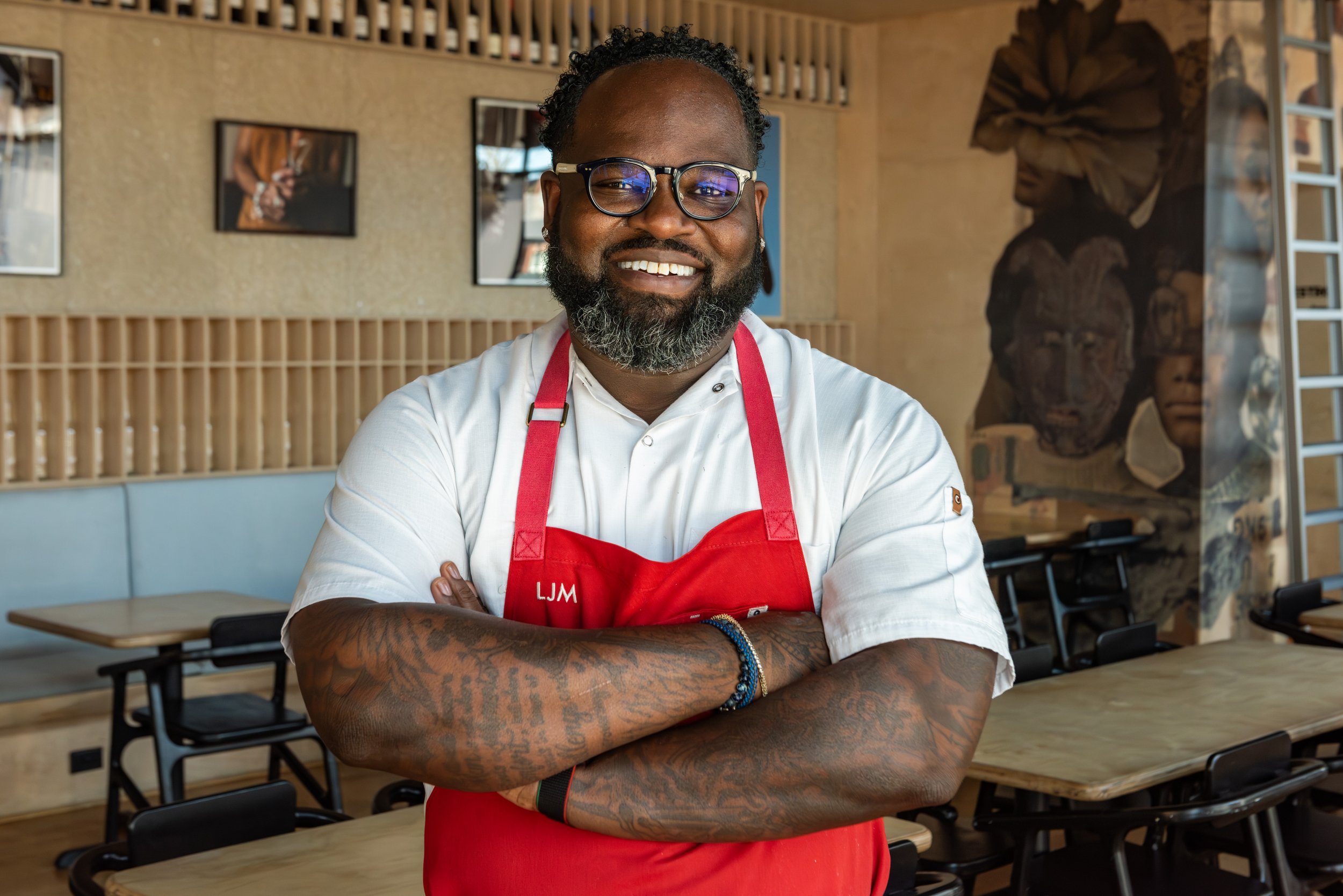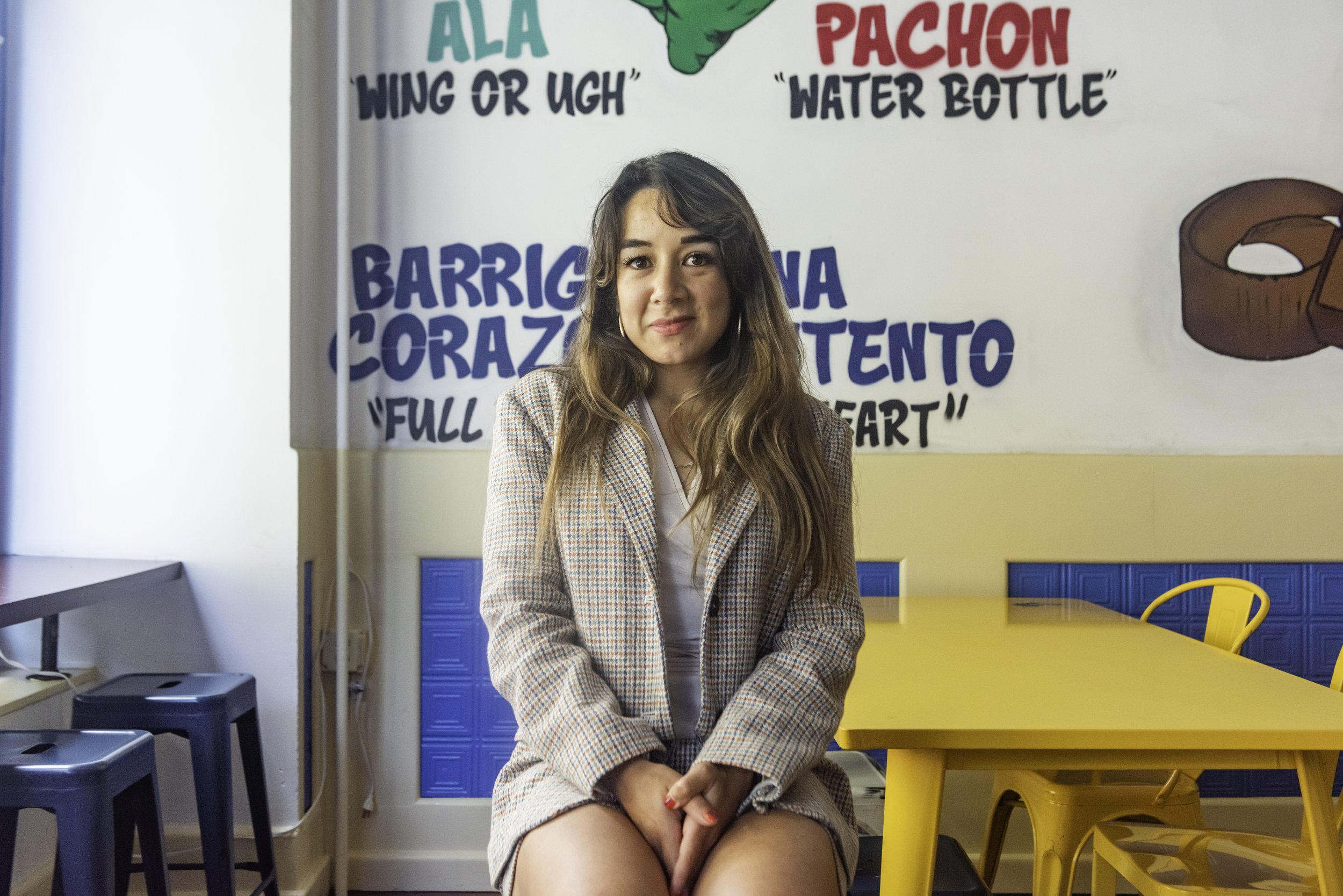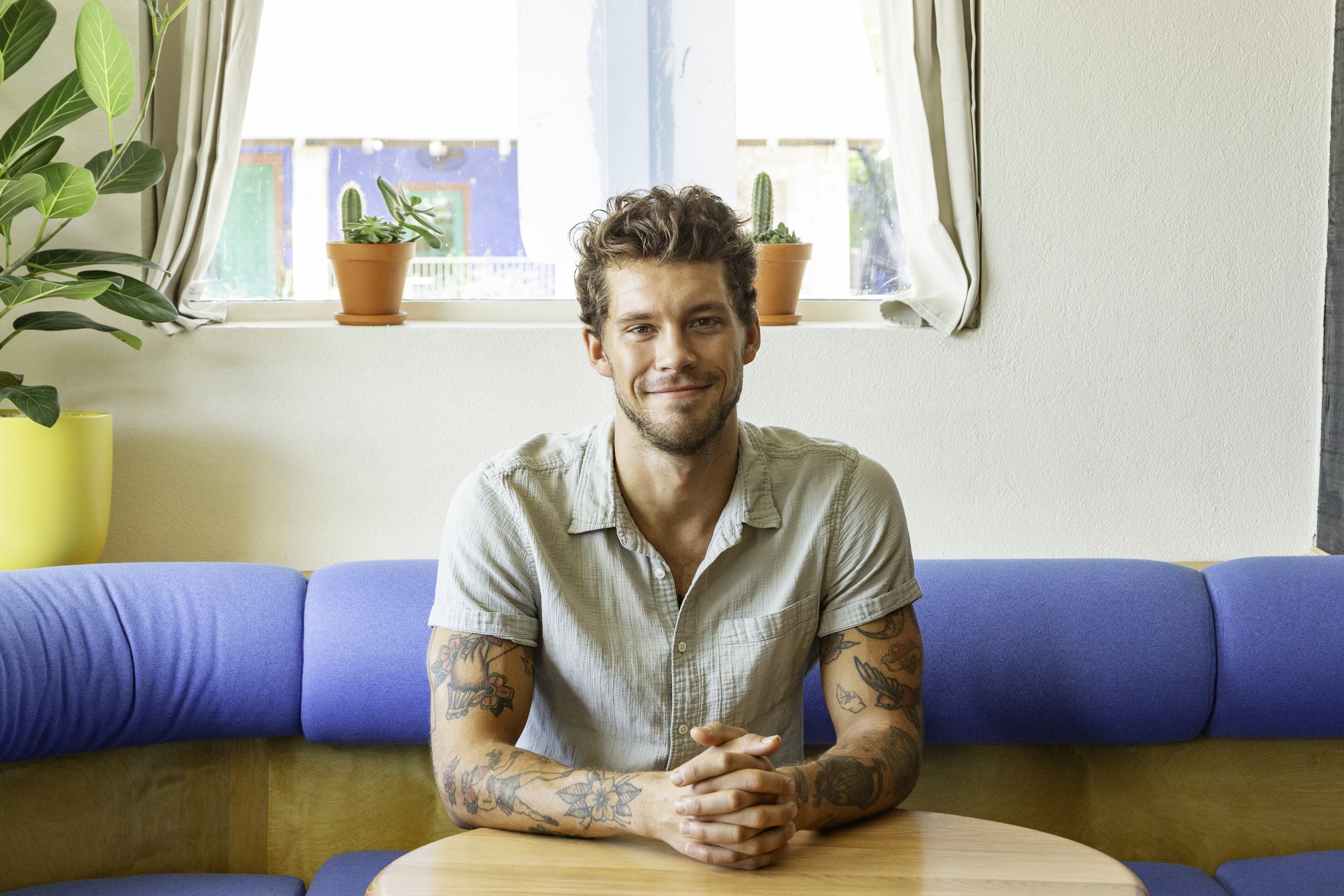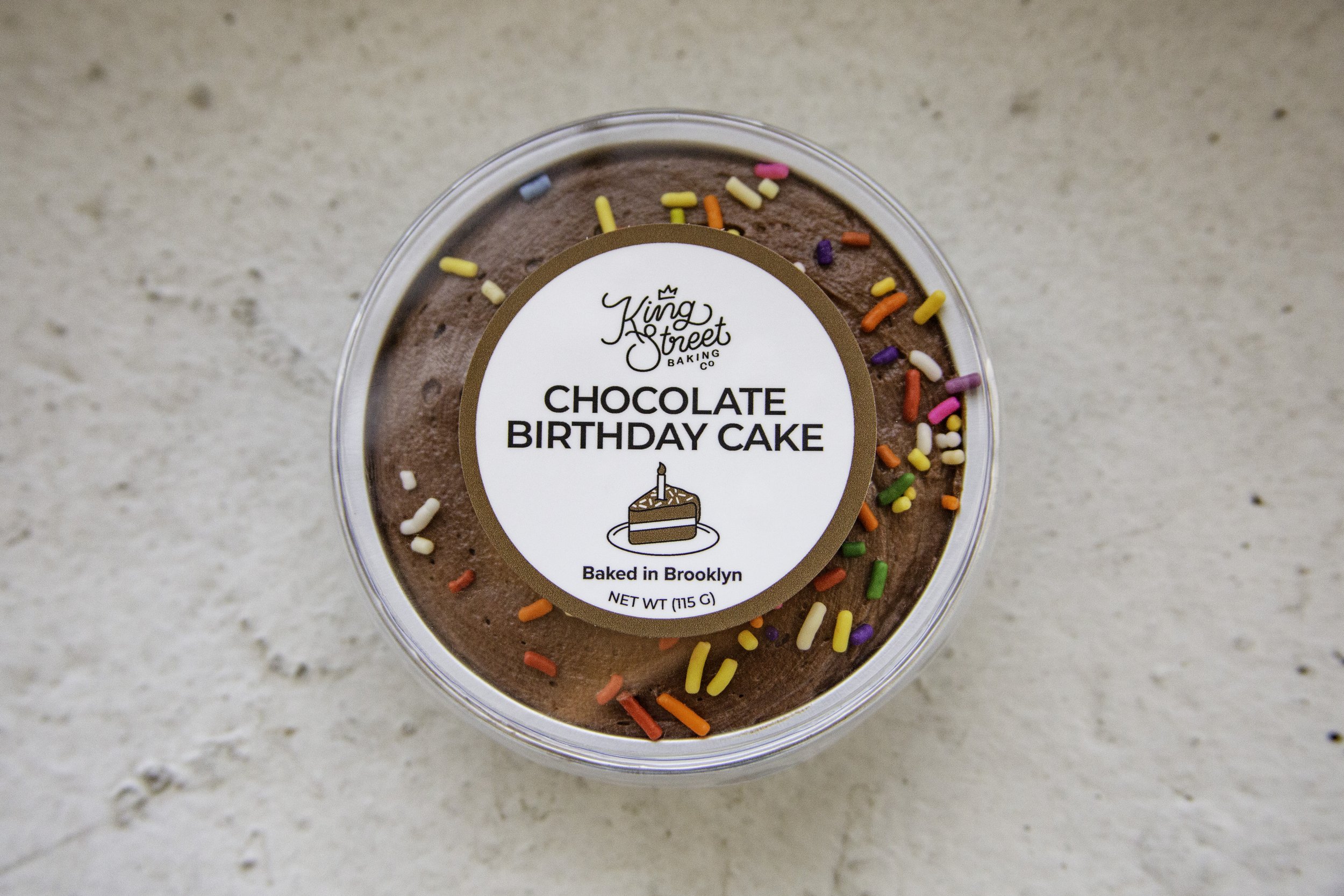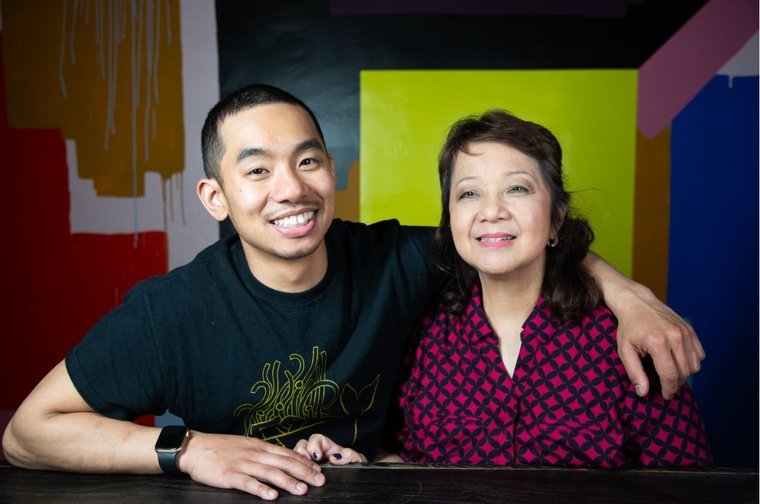Stronger Together: The Sisterly Love Collective
A group of industry professionals joins forces to fight for equality and opportunities for women in hospitality.
Sisterly Love Collective (SLC) is on a mission to create a more equitable industry for women in hospitality. Inspired by Let’s Talk Womxn calls during the summer of 2020 and seeing how other entrepreneurs were dealing with restaurant industry crises, High Street Hospitality’s Ellen Yin recruited her own team of fellow restaurant owners, chefs, and hospitality leaders focused on supporting and uplifting their peers.
The group consisted of Restaurateur Bridget Foy, archaeologist and Sojourn Philly owner Jill Weber, Top Chef All Star Jennifer Carroll of Carroll Couture Cuisine, and Jezabel Careaga of Jezabel’s Cafe, among others. They knew each other around Philly, but didn’t officially bond until those virtual check-ins early on. Soon, Sofia DeLeon of El Merkury and Tenango Rum, Cassandra Burnett of Lizzie’s Love Cakes, and Jacleen Mowery, Adjunct Professor of Tourism and Hospitality at Temple University, joined their weekly 10 AM Zoom calls as extra support and voices.
“I’ve known and admired so many of these women, so being able to work with them more intimately is really cool for me,” says Carroll.
restaurateur ellen yin
By the end of 2020, the Sisterly Love Collective launched its first activation—a fair to showcase local food makers—and now SLC has grown into an organization led by 10 women and consisting of nearly 200 members.
“It has been very insightful to learn the [food and beverage] business from an outside perspective, but also to look at my background and skillset and see how I can help enhance and increase the organization,” says Mowery. She became a member after a happy hour event at Weber’s restaurant Rex at the Royal.
The Sisterly Love Collective works as a non-profit, community-based model: word-of-mouth, events, and programming bring others into the fold, and anyone can sign up to be a member on their website. Membership tiers target individuals at different stages in their businesses and careers and range from $25 to $500 annually. There are also donation options and an ally membership option for men meant to be inclusive and financially accessible for all.
In the beginning, SLC’s membership focus was on hosting markets: the pandemic led to a rise in home-based small businesses and passion projects, making markets crucial for maintaining public visibility of members’ businesses (Tier 1). Tiers evolve to reflect community needs and inform programming options like market vending and higher-level professional development opportunities (Tier 2). Other members are first-time entrepreneurs with consumer packaged goods and food brands under three years old (Tier 3), or young women eager to break into the field (Tier 4).
“[Businesses that] were ‘COVID babies’ have different needs than someone who’s been running a restaurant for 15 or 20 years,” adds Mowery.
Business development training, mentee/mentor relationships, and financial opportunities are tangible benefits within SLC. Members sell and R&D products at events and marketplaces, learn about city grants and acceleration programs, are introduced to advocacy groups, and link up with future collaborators. Philadelphia’s food and beverage scene gaining national acclaim makes these economic opportunities for women-led food organizations significant.
Chef-OWner Sofia de leon
“So many women are overlooked when it comes to funding, financial support, or investment,” says Weber. “By joining together, we have much more power to help shift that dynamic and ensure everyone can access the means for economic success.”
There is no shortage of member success stories. With help from SLC, Amy Wilson of Milk Jawn won MAPP Impact’s seed-funding competition. As a finalist, she received mentorship from Michael Shemtov of Butcher & Bee, as well as $8,000 in funding and free marketing and legal services. Katie Legazpi started Feel Goodies Philly at the start of the pandemic when she was laid off from her job. Being part of the SLC food fairs grew her customer base, allowing her to “make connections that felt out of reach.”
“We’re stronger working together rather than in our own silos,” adds DeLeon.
All members believe in the mission of empowering others and paying it forward. For tenured professionals like Carroll, Sisterly Love Collective is a great way to widen their circle, and they often pass along media opportunities and invite undiscovered members to events.
In just the small amount of time I’ve been involved with SLC, I’ve adopted so many new skill sets, continued to grow my marketing toolbox, and been extended so many exciting event opportunities,” says member Kate Morrison of High Street Hospitality.
Landing sponsors has been an exercise in relationship building—and it’s paying off. SLC raised $25,000 for Women Against Abuse with Les Dames d’Escoffier Philadelphia as a fiscal sponsor. There are also event packages attracting the attention of big-name sponsors like Diageo, Comcast, and Santander Bank that help cover the costs and expenses of larger-scale series like Cookbooks & Convos (spearheaded by Morrison), which hosted 30 events in 30 days and is scheduled to continue in 2024. SLC also collaborated with Cherry Bombe for their podcast “The Future of Food Is You” to reach a wider audience.
ice cream maker amy wilson
“With the support of Visit Philly, Rittenhouse Row, and Philadelphia Industrial Development Corp, Sisterly Love was able to host an entire block of SLC members, enabling members to sell their products and for the Collective to be viewed together as a united entity promoting women-owned businesses,” notes Yin.
Aiming for scalability, SLC has learned to take a step back to refine its vision and mission, a lesson they advise other startups to do sooner rather than later. Sisterly Love Collective is focused on modest intentional growth which requires smart operations. There’s also the need for increased fundraising, marketing, membership, administrative support, and an executive director. After all, they’ve got big plans ahead: thematic committees on motherhood and entrepreneurship, financial literacy courses, access to capital, and larger programming partnerships are scheduled for 2024.
“Organizing and creating a system of engagement is our next step in growing,” says Yin. “When we look back from 2020 to now, how much our organization has grown, evolved, and solidified, is what makes SLC have long-term prospects.”
SLC is fortunate to have a team that shares the same vision, builds genuine friendships, and is adaptable enough to keep moving forward, but they know there’s more work to do.
I want to see men coming in as allies, giving fiscal sponsorship, donating their restaurant spaces, getting women staff involved, showing up at our happy hours,” shares Carroll. “We can’t do this alone.”
“One of our members once thanked me [and SLC] for ‘making a bigger table’ for more people to gather,” says Weber. “I felt that was a success, and [it’s] definitely a reason I am so enthusiastic about SLC.”




